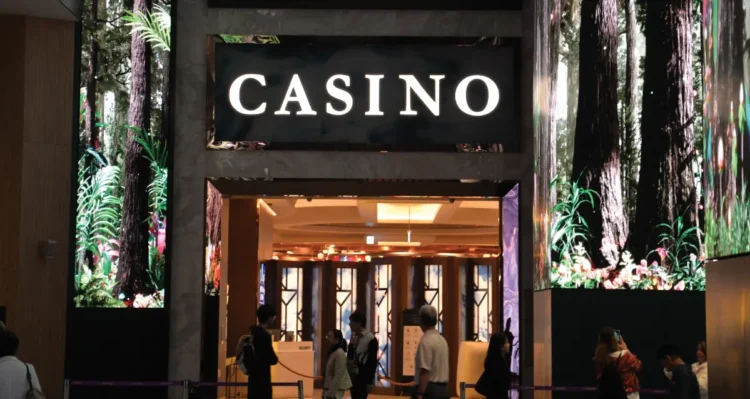Asia’s foreigner-only casinos, specifically those located in South Korea and Vietnam, were born with a natural disadvantage – one that was only exacerbated during the COVID-19 pandemic. But recent performance suggests these industry outliers are fighting back, carving out a niche position that has many producing record results. IAG takes a closer look.
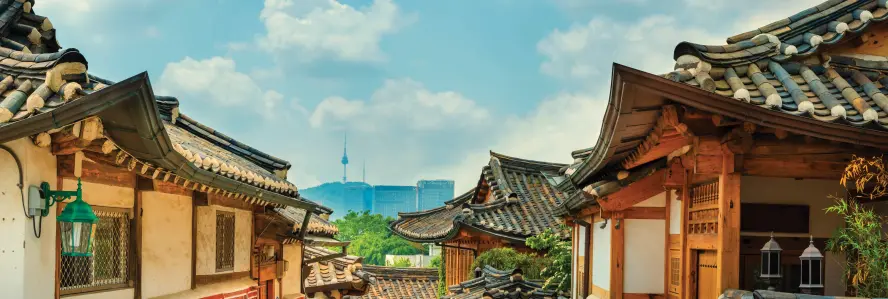 Asia’s foreigner-only casinos represent unique outliers in the global gaming space, the result of an uncomfortable equivocation of ideals around the moral and financial implications of casino gaming.
Asia’s foreigner-only casinos represent unique outliers in the global gaming space, the result of an uncomfortable equivocation of ideals around the moral and financial implications of casino gaming.
In South Korea and Vietnam, where foreigner-only has long been the method of choice, governments have welcomed multi-billion-dollar investments into world-class integrated resorts – mirroring the trend seen in other regional gaming jurisdictions like Macau, the Philippines and Singapore. But unlike those peers, their commitment has been tempered.
Without the baseline support of a domestic market, these foreigner-only casinos have faced an array of challenges that are largely reserved for the sort of transient market they serve. Regional competition is tough enough as it is, but even more so when your entire customer base must be provided an attractive enough reason to hop on a plane to visit.
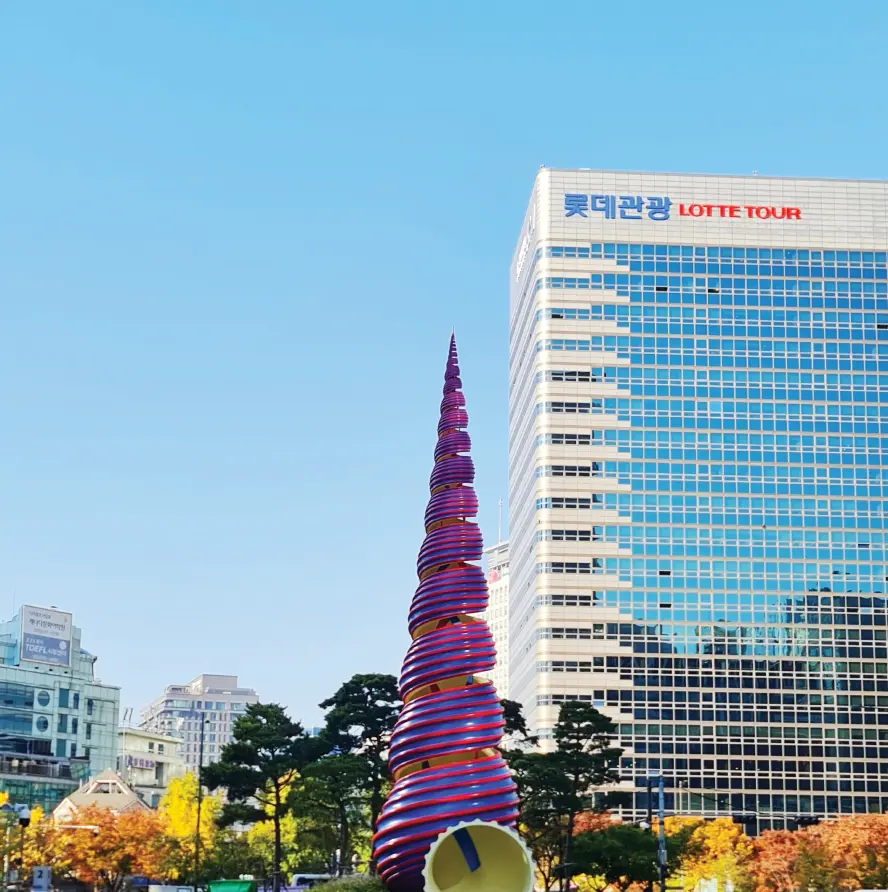
The COVID-19 pandemic and, in Korea’s case, past tensions with bordering China, have also highlighted the fact that foreigner-only operations remain highly exposed to diplomatic and environmental headwinds. As sweeping as the effects of the pandemic were around the world, no gaming operators were hit as hard and for as long as those located in foreigner-only jurisdictions (like the one Macau might argue it became when its border with the mainland was closed).
But the tide is turning, and foreigner-only casinos are fighting back. Evidence out of Korea – home to 17 foreigner-only properties, eight of which are run by three operators listed on the Korea Exchange – shows casino revenues rising to record levels.
Lotte Tour, which launched its integrated resort Jeju Dream Tower on the renowned holiday island of Jeju in late 2020 – with the casino launching in mid-2021 – has reported seven straight months of all-time highs for visitation and casino drop, reaching 57,042 visitors and KRW281.1 billion (US$202 million) in drop in August. Casino sales for that month were KRW43.0 billion (US$30.9 million).
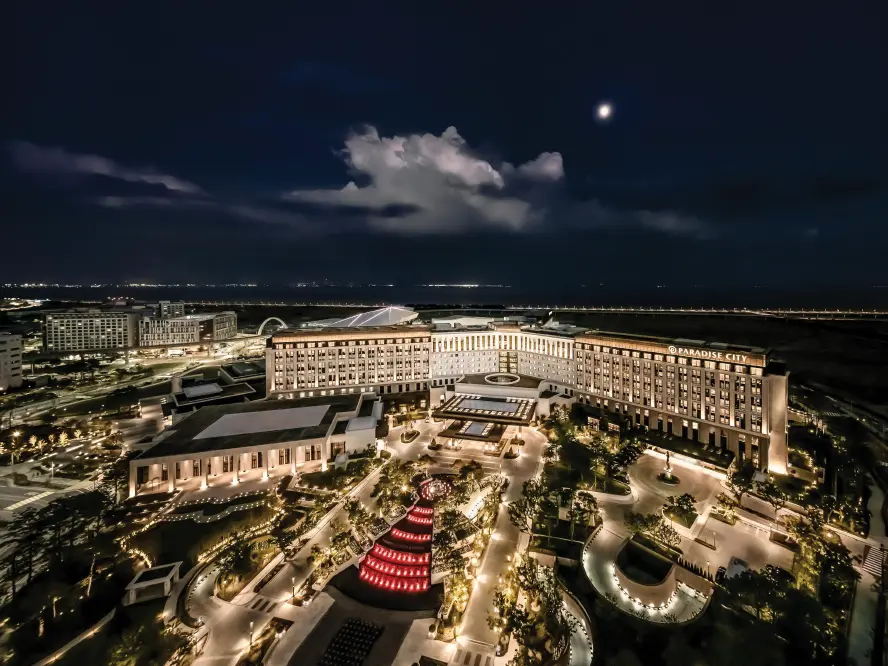
Paradise Co, the country’s leading casino-only operator with properties in Seoul, Busan and Jeju plus its Paradise City integrated resort in Incheon, has been on a similar roll, with casino revenue climbing to KRW80.5 billion (US$57.7 million) in August, up 11.7% year-on-year.
The factors are many. Revenge travel and spending remain strong, as customers do their utmost to make amends for the pandemic years, while a recent easing of visa policy has gone a long way towards luring back the lucrative Chinese market that largely abandoned Korean tourism when the two nations clashed in 2016 over Korea’s deployment of a US-backed THAAD missile defense system.
Then there is the curious case of INSPIRE Entertainment Resort. Opened in late 2023 in Incheon, near Seoul – the area’s second IR after Paradise City – by US tribal casino operator Mohegan, INSPIRE was envisioned as taking the Korean IR experience to a new level. Coming at a cost of US$1.6 billion – significantly higher than any other Korean foreigner-only casino project – it features 1,275 hotel rooms across three hotel towers, Korea’s first multi-purpose arena, MICE facilities including the largest ballroom in Korea, a retail mall, more than 10 INSPIRE-owned restaurants, an international food court, an indoor children’s playground and a state-of-the-art digital entertainment street, Aurora.
INSPIRE’s introduction to the market has been anything but smooth. In February, Mohegan’s main lender for the project, Bain Capital, assumed operational control of the property after accelerating actions against Mohegan following an event of default under the terms of a US$275 million term loan. The US firm explained that the default was a debt covenant violation related to its failure to achieve agreed financial targets, rather than any missed payments on principal or interest, but as of today it remains locked out of the resort it developed.
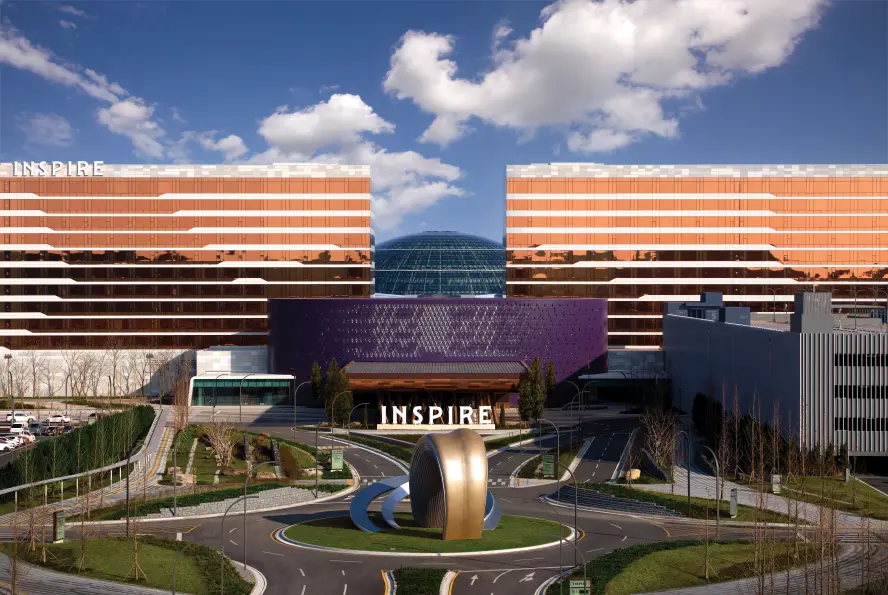 Despite such setbacks, INSPIRE’s CEO Chen Si says the property is misunderstood.
Despite such setbacks, INSPIRE’s CEO Chen Si says the property is misunderstood.
“I think we have to decouple the ownership and financing situation of the business with the operations side,” he told Inside Asian Gaming at the recent IAG Academy Summit in Manila. “From the beginning it was a very difficult project to finance and was highly levered – of the US$1.6 billion in capital, US$1.1 billion was debt and, of that, US$300 million was very expensive mezzanine debt – so from that perspective it was always going to be a very difficult project.
“But on the other side, operationally we opened with great fanfare in Korea.”
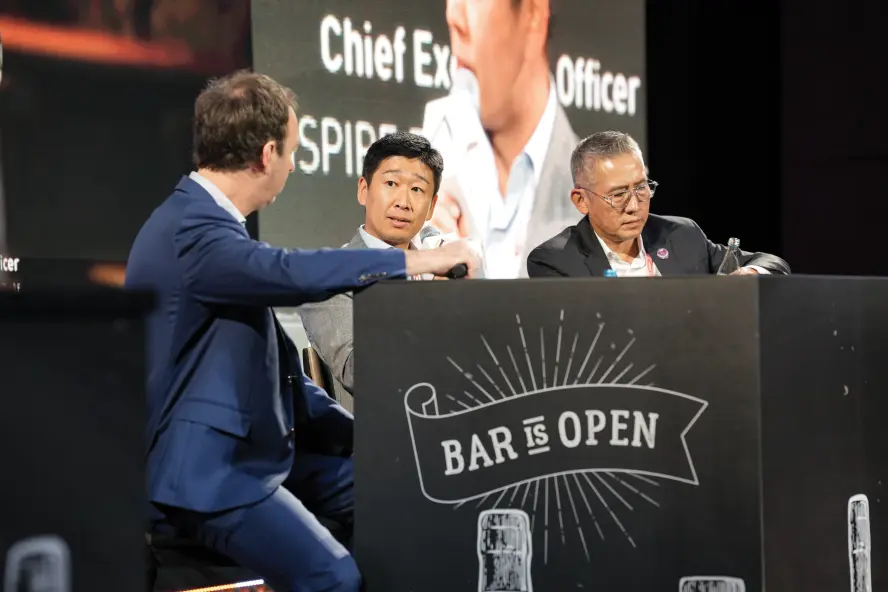
According to Chen, INSPIRE – which under Bain Capital’s control is no longer required to report financial results publicly – welcomed more than 4 million visitors to the resort in its first year since opening and has been EBITDA positive since July 2024.
“The ownership change that took place in February helped us reduce our debt on the balance sheet by the order of US$400 million, plus or minus, so we’re in a much better space now and it’s really just focusing on ramping up,” he explained. “Strategically speaking, that’s all we’re trying to do.”
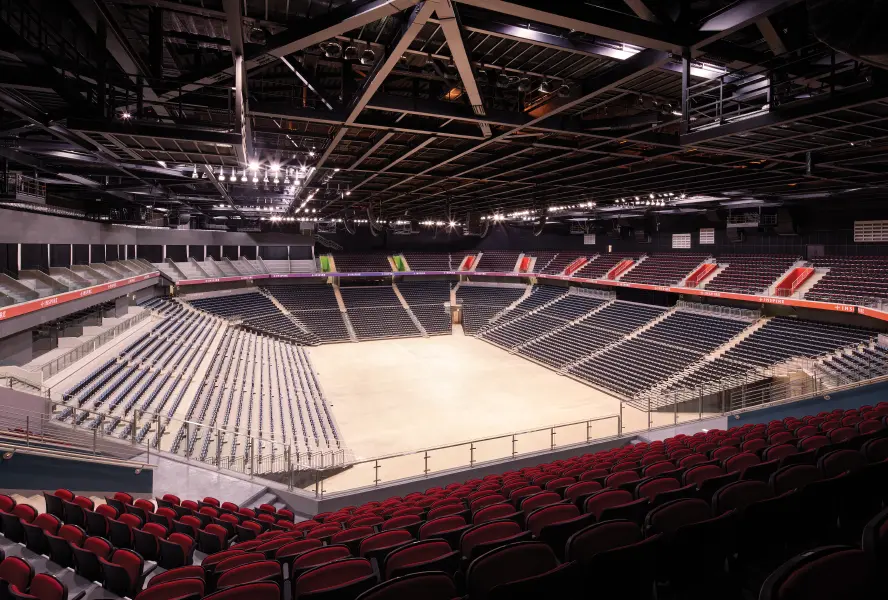
INSPIRE is seeing results on the back of a two-pronged strategy, Chen continues.
On the gaming side, the decline of the Macau junket market has created an opportunity to attract high-end Chinese to Korea by leveraging the destination itself and creating a unique experience for those premium customers.
Chen, a former Macau executive who spent many years with Sands China, notes that just because junkets no longer dominate the Macau gaming scene doesn’t mean they have disappeared from Asia altogether.
“There’s a viable premium market there, for sure,” he said.
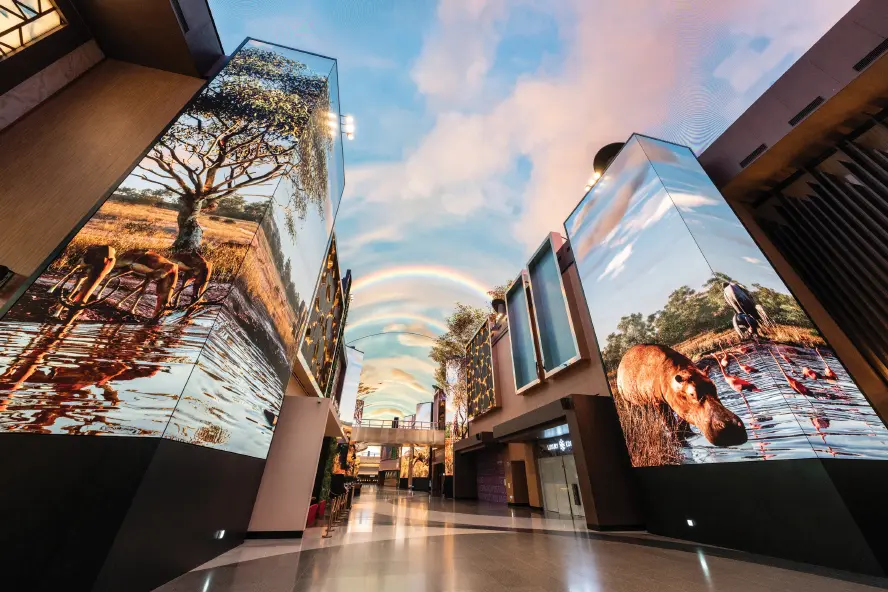
“Korea traditionally is a market for Japanese players and local Koreans with residences, whereas when we entered, we really had a focus on China. We brought in Chinese agents and direct marketers who drive China, so a lot of new players were introduced to the market.”
INSPIRE has, Chen adds, therefore played a crucial role in helping drive the improved revenues seen across the industry – particularly at nearby Paradise City and the Seven Luck casinos in Seoul operated by government-owned Grand Korea Leisure.
“They (Chinese players) play across the board – with us and Paradise City primarily but sometimes they want to go into Seoul and then they will play at Seven Luck, so the ecosystem is becoming a little bit wider,” Chen observed.
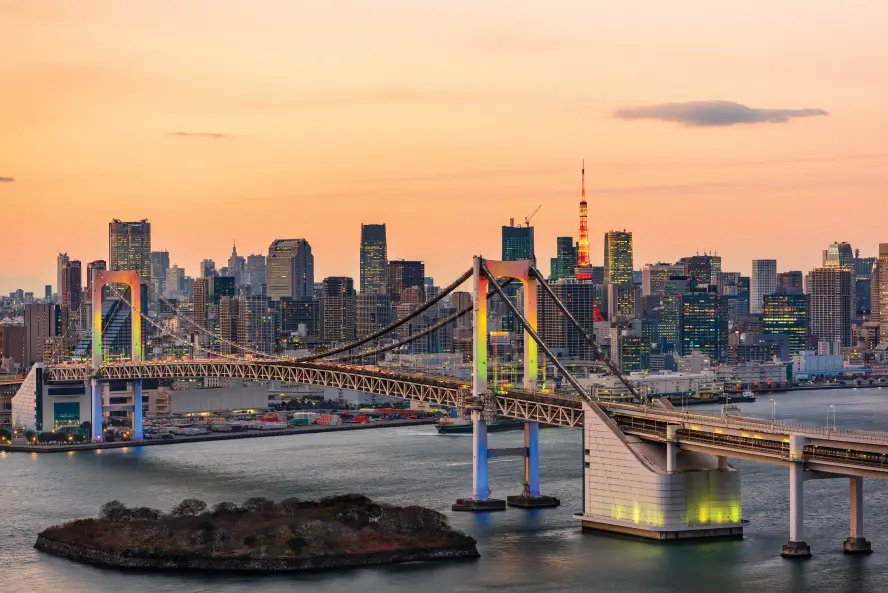
“The market is growing, and I would take credit for some of that growth, even for our competitors, because we’re introducing new players to the market.
“A lot of the suppliers [at IAG EXPO] were telling me that suddenly Korea has become a very attractive market from a supplier point of view, because all these operators who never bought machines for the last 10 or 15 years are suddenly buying machines – and that’s because INSPIRE opened with all the new machines.
“Similarly, when we have big concerts like Jacky Cheung [in mid-September], you know we only have 1,200 rooms at INSPIRE and we’re selling 9,000 tickets for the concert, so where is everybody staying? At Paradise and Seven Luck. Everybody benefits, right? And we’re okay with that. I think it’s great to create that ecosystem.”
It is these headline events like Jacky Cheung that form the other tenet of INSPIRE’s strategy, with the company leveraging its impressive arena to tap not only into its core Chinese and Japanese markets but also the 1.2 million-strong expat community across greater Seoul.
“We host more than 70 shows a year and are driving massive volumes as a result,” Chen continued.
“If you look at Japan, this has always been a great market for Korea and is very accessible in terms of fund transfers, so we’re obviously trying to fight for market share with Paradise. They are the largest market share holder of Japan right now and we’re chipping away at them, again through entertainment. We have done a bunch of J-pop concerts and we just announced that next February we’re doing essentially the, ‘Jackie Cheung of Japan’ at INSPIRE and the travel agencies in Japan are already going crazy about that. So, there’s a lot of buzz around our entertainment offerings that will help drive the gaming side.”
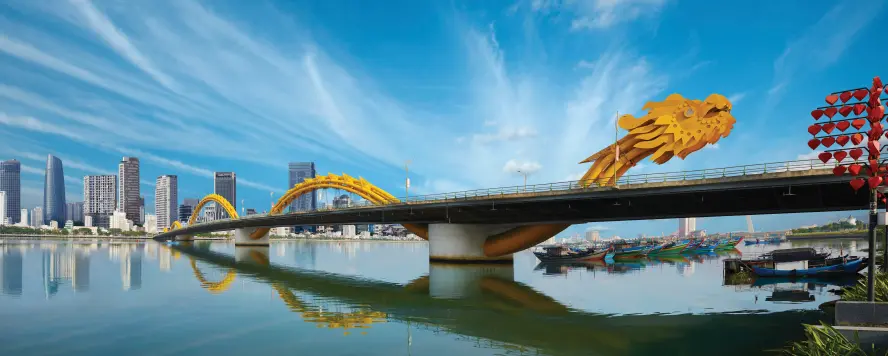
Like South Korea, Vietnam has traditionally imposed a strict foreigner-only policy across its licensed casino venues, comprising three large-scale integrated resorts – The Grand Ho Tram, Corona Resort & Casino, and Hoiana – and around half-a-dozen smaller venues.
It’s a policy that has proven challenging in the past, particularly given the government’s US$2 billion investment requirement to develop an integrated resort. But that hasn’t stopped them from trying.
Ho Tram, opened in 2013 with an initial investment cost of US$500 million, remains on track to fulfil its pledged US$4.2 billion total spend that will, once fully complete, include a casino, 9,000 hotel rooms, an 18-hole golf course, villas and expansive retail options. The casino, golf course and some hotel rooms have been operational since opening.
In May, Ho Tram broke ground on a new 35-hectare development that will add a new five-star hotel complex, luxury resort villas, entertainment amenities and an international convention and exhibition center to its existing offering at an estimated cost of US$1 billion.
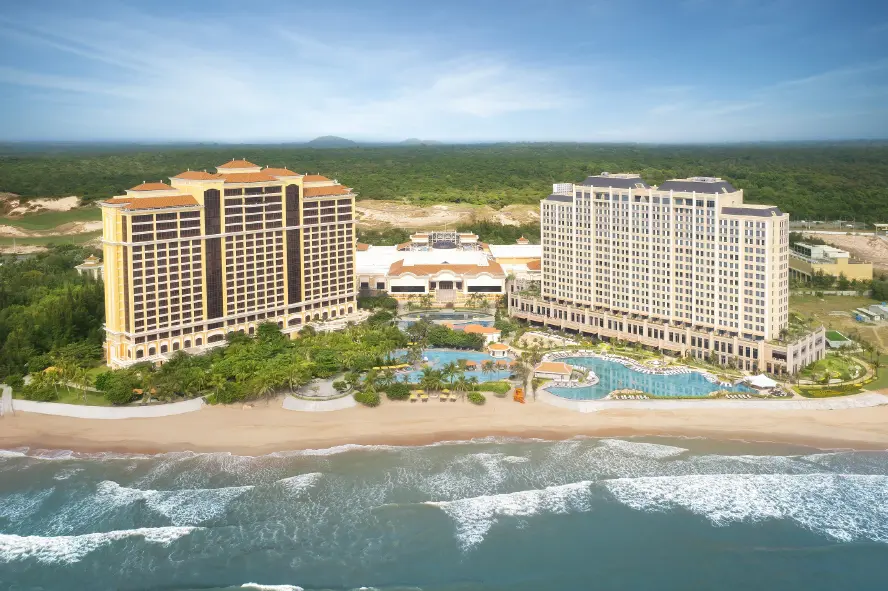
Still, the road has been rocky. Initially linked with US casino operator MGM Resorts before MGM pulled out pre-opening, allegedly over concerns that locals gaming might not be as imminent as it had hoped, the resort’s initial US$500 million investment was instead covered by US hedge fund giant Harbinger Capital. Harbinger Capital eventually sold off its majority interest in The Grand Ho Tram’s parent company, Asian Coast Development Ltd (ACDL), to private equity firm Warburg Pincus in July 2019.
Warburg Pincus subsequently inserted a new management team in early 2020, led by Walt Power – a Macau industry veteran whose previous roles include SVP of Operations for Sands China subsidiary Venetian Macau Limited – who was named CEO.

Power previously told IAG that Ho Tram has found some success in the years since by recalibrating its focus towards events like mixed martial arts nights, casino-related VIP dinners, fashion shows and beauty pageants. The target market is primarily the considerable expat community in Ho Chi Minh City – around two-and-a-half hours away by car – and international guests from Korea, Taiwan and Hong Kong.
“We’re certainly a weekend driven business, so that’s our current strategy,” Power said in a 2023 interview. “We are taking a leaf out of Macau and The Venetian in Las Vegas by filling the hotel up with MICE events during the week, and then weekends are for holiday makers, tourists and casino guests.”
Nevertheless, locals gaming remains central to Ho Tram’s long-term ambitions, with local media reporting in late September that the property is finally expected to be granted its locals wish for a 5-year trial period under an expansion of a pilot program previously implemented at Corona Resort in Phu Quoc.
While Power declined to comment pending official confirmation, Alan Teo, the CEO of Hoiana – located outside the Ancient Town of Hoi An – told IAG during a session at the IAG Academy Summit that Ho Tram is a property that would “benefit a lot” from any policy change “because it’s so near to a large, local population”.
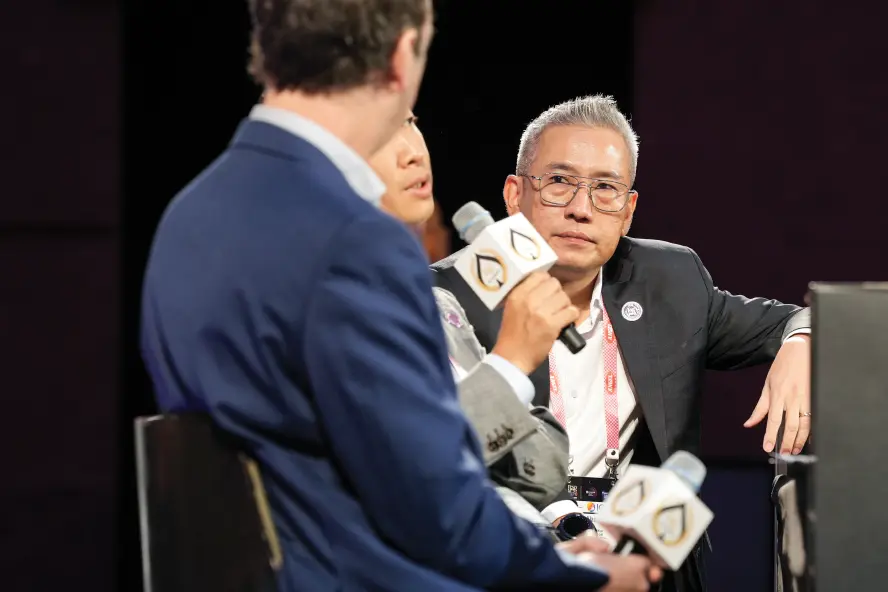
And Teo would know. The former Resorts World Sentosa and NUSTAR executive joined Hoiana in February as part of the shareholder restructure and capital raising exercise that saw Hong Kong-based investment firm VMS Group assume a controlling 75% stake in Hoiana’s parent company, Hoi An South Development Ltd (HASD).
Like Ho Tram, Hoiana has under the new ownership structure announced plans to accelerate its US$1 billion Phase 2 development, adding to its existing 1,200 high-end hotel rooms, golf course, convention facilities, restaurants and other entertainment options.
But, also like Ho Tram, it has had to pivot since its 2020 launch given the complex collapse of its original business model.
VMS Group was part of Hoiana’s original three-way ownership structure that also included Hong Kong-listed Suncity Group and Vietnamese investment management and real estate firm VinaCapital. The project was, from an operational view at least, initially led by Suncity with a view to leveraging its associated Macau junket business to drive high-end visitation to the new Vietnam resort.
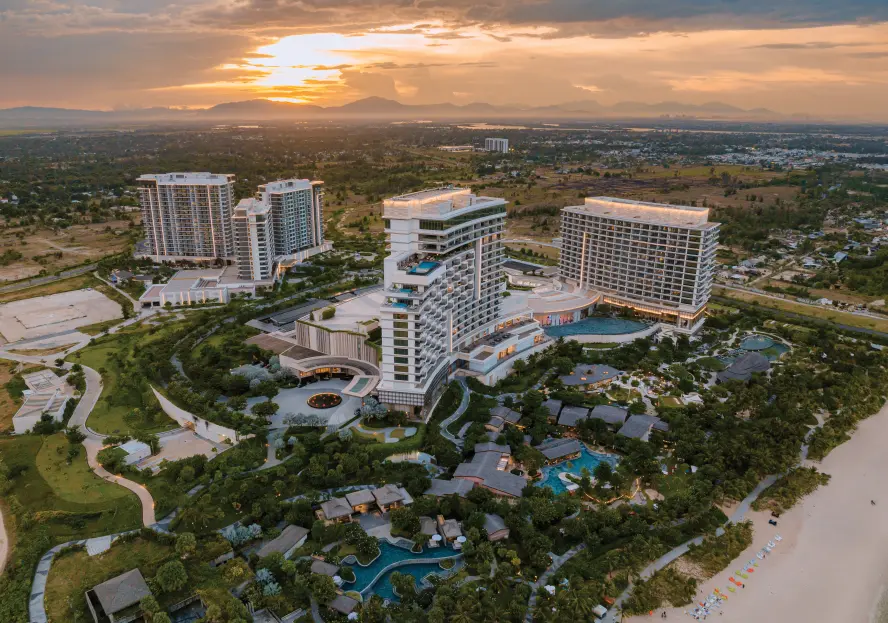
However, the 2020 arrest of leading Macau junket figures including Suncity Group chairman Alvin Chau – and the subsequent collapse of the Macau junket industry once Suncity and others were forced to shut down operations – saw Hoiana’s playbook thrown out the window. That it opened into the teeth of the COVID-19 pandemic didn’t help much either.
“I think when Hoiana first opened during COVID times, the focus was casino first, then the destination, but we have changed our focus to market the destination first, then the casino for foreigners,” Teo explained.
“There are three factors that are very important for success for foreigner-only casinos. One is the purpose of visit, so the destination must be able to create that purpose of visit for people to want to fly to that country and make their way to their destination. Two is ease of travel. How easy is it for someone to book a flight and to travel from the airport to their destination? And three is safety – whether your country is safe to travel in. So, what Hoiana did is we refocused on anchoring around these three key factors. For example, we leverage on having one of the world’s top 100 golf courses as a reason for people to come; we are only 45 minutes from the airport; and, Vietnam being Vietnam, it’s a very safe country to be in.”
Unlike Ho Tram and other regional destinations such as INSPIRE, Hoiana continues to target the premium player, with Teo noting that while the traditional Macau junkets no longer exist – or at least not at the same scale – the junket model itself is not completely dead.
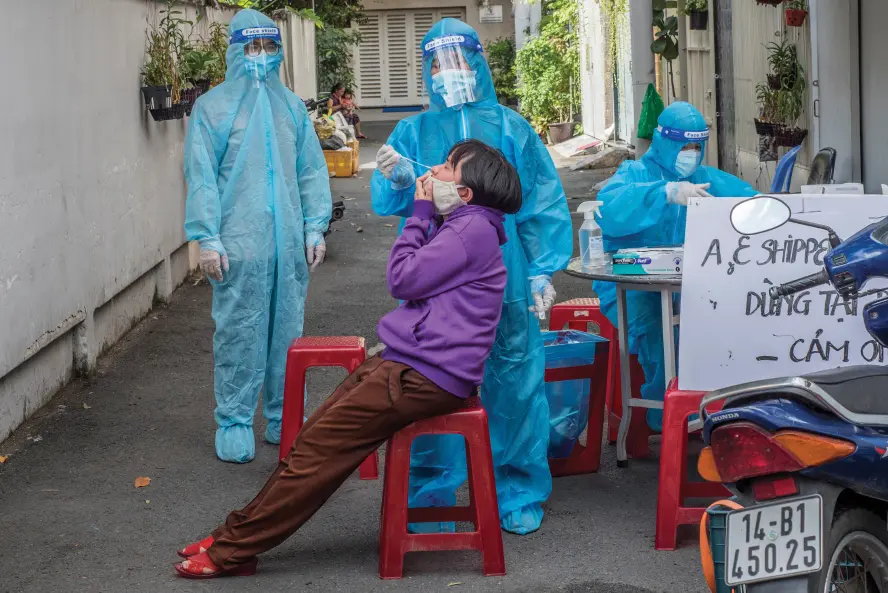
“They are just looking for another place to continue to operate their business,” Teo explained of Vietnam’s junkets, known locally as Independent Travel Operators. “A lot of those marketing agents are still around and continue to have a steady flow of customers, so it’s not that junkets are completely gone from the world – it’s just that they are looking for another place.
“What we do is partner with the bigger, more reliable junkets that have very low credit risk to us, very low risk to the casino, and they help us bring in a volume of customers who create that volume.”
On the lure of Hoiana’s golf course, Teo adds, “One of the advantages we have is that most golfers are gamblers – they basically start gambling on the first hole. So, we have better conversion rate of golfers to gamers in that sense.”
It is, however, locals that remain front and center of the Vietnam casino conversation given slow but steady moves by the central government to liberalize the industry.
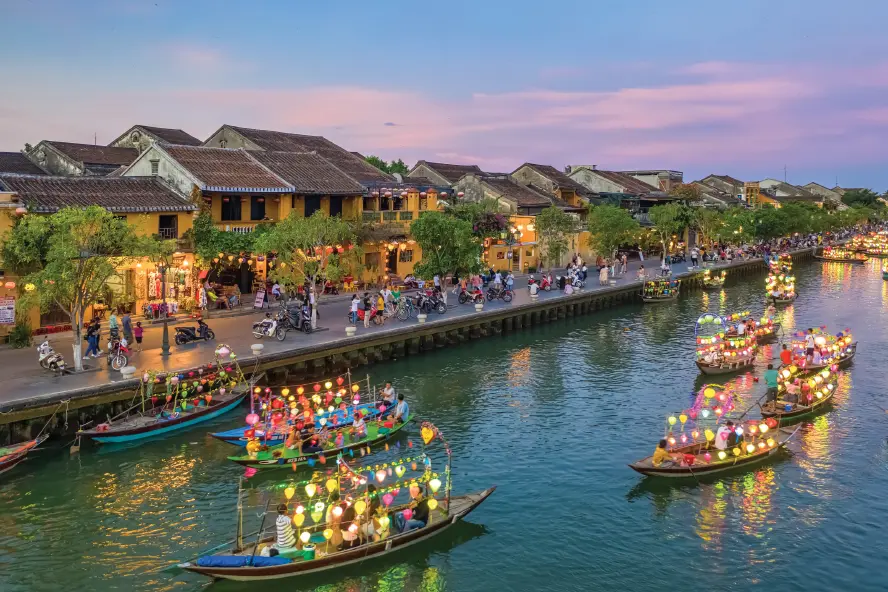
In 2019, it was announced that a pilot program for locals gaming would be conducted at Corona Resort & Casino over a three-year period commencing from January 2019. Results were underwhelming, to say the least, and predictably so given the absence of any significant locals market in Phu Quoc. Notwithstanding the fact that the program was also interrupted by the pandemic, it was revealed upon conclusion that locals contributed just 5% of gaming revenue during the initial three-year pilot period.
On a more positive note, the pilot provided some clarity around the government’s locals gaming stipulations – particularly a requirement that any Vietnamese national looking to enter a casino must have monthly income of at least VND10 million (US$380) and provide documentation proving as much.
Earlier this year, it was reported that Vietnam’s Ministry of Finance was pushing for a resumption of locals gaming at Phu Quoc on a permanent basis and the implementation of an entry fee amounting to VND2.5 million (US$100) for each 24-hour period of casino access, or VND50 million (US$2,000) per month. This entry fee would replace the financial capacity requirement, with an explanatory report from the Ministry explaining that although previous regulations around the pilot program had been effective, issues had arisen around financial capacity verification because many individuals who had sufficient means had found it difficult to prove as much given the documentation required.
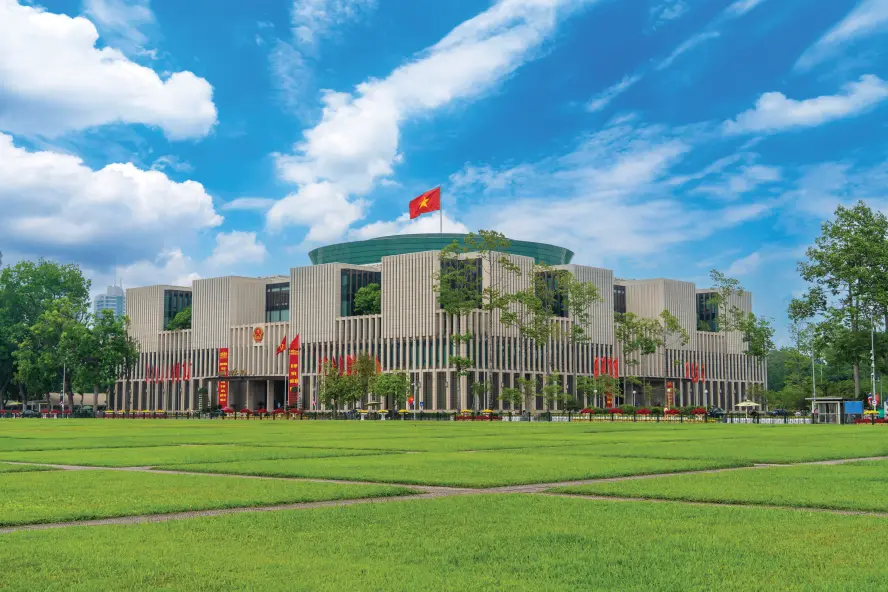
The likely addition of Ho Tram under Vietnam’s revamped pilot program has been rumored for some time, and IAG understands the property has been hiring new staff in anticipation. Longer-term, a new US$2 billion integrated resort project to be developed by Vietnamese development giant Sun Group in Van Don, Quang Ninh Province, currently slated to open in 2032, is also said to be in the mix for locals gaming.
Asked about such additions, Teo said, “I do hear that locals gaming is coming to certain properties, although how soon remains to be seen. But definitely it will be a good thing when locals gaming does happen, because it then opens greater opportunity to make the property even busier, and with that comes more investment.”
Locals gaming, Teo adds, would be “transformative” for existing IRs, not only by significantly widening the customer base but by forcing a rethink of current offerings.
“For the suppliers out there, we would definitely be buying more machines [to cater to locals preferences], and then our casino floor would probably have to increase to cater to them as well,” he said. “Certain offerings from the non-gaming side, the F&B, the entertainment … we would have to make a lot of changes to cater to those players, so yes it would be quite transformative.”
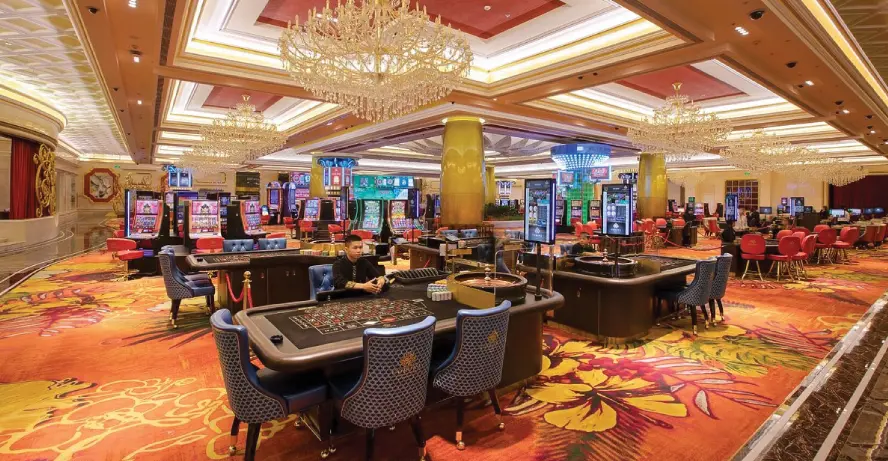
Korea, meanwhile, faces a less certain future for its foreigner-only casino business as it awaits the opening of Japan’s first, and for now only, integrated resort in Osaka – a massive US$10 billion development led by MGM and which threatens to take a hefty bite from Korea’s valuable Japanese player base.
In response, Paradise Co last year announced plans to develop a new all-suite flagship hotel in Seoul and to enhance its VIP offering as part of a revamped strategy to provide a more appealing alternative for its international clientele. It is also said to have this year hired – for the first time ever – Chinese marketing staff and to have launched a credit department as part of a pivot away from long-term reliance on Japan.
“For Korean casinos, given how important the Japanese segment is, we’re all very aware that this could have a detrimental impact to our business,” said Chen of the looming MGM Osaka threat.
“I think everybody’s thinking about how we can increase our non-Japan business in the casino across Korea. That is for sure a priority for everybody. If [Osaka] doesn’t happen then it’s just a cherry on top – we retain that Japan business and get more from others.”
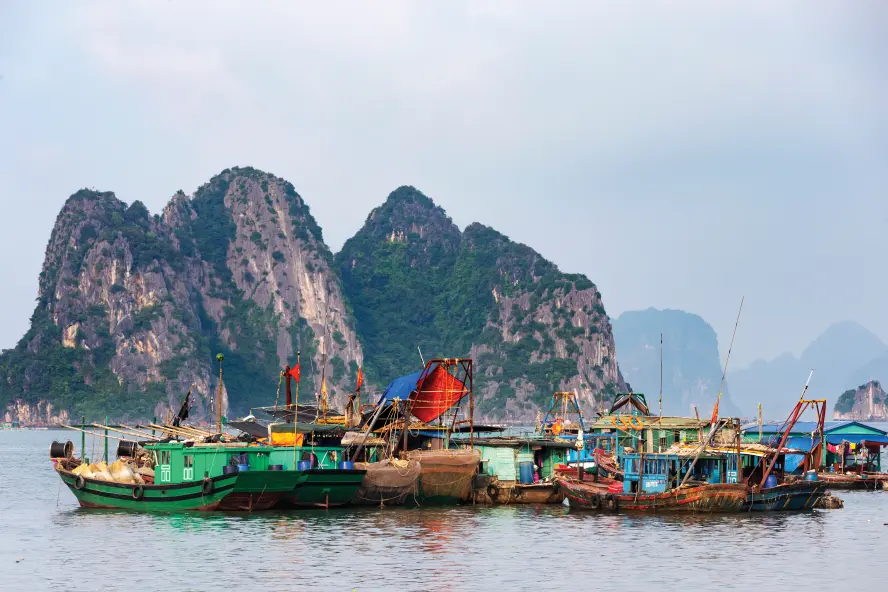
But as for Korea following Vietnam’s lead and opening its casinos up to locals, Chen isn’t holding his breath.
“This topic is talked about regularly in Korea, and the Korean Tourism Association and Korean Casino Association are both advocates for this,” he said.
“My sense is it’s something people talk about, but nobody really wants to take responsibility for leading the charge. It is just such an emotional issue and such a political issue that given the volatile political situation in Korea in the last few years, it’s not even really on the radar.
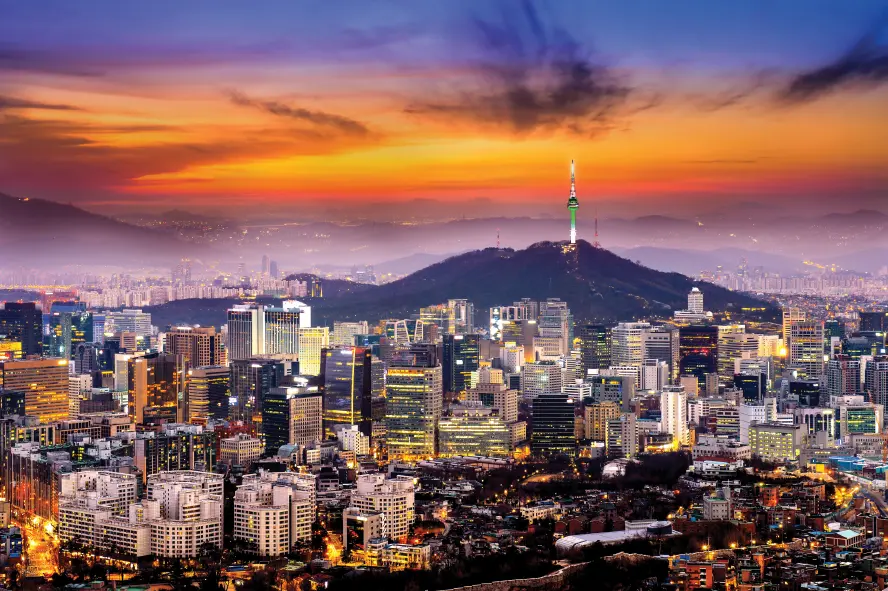
“If you meet some of the politicians in private, they all say that of course it’s a good idea – but would they want to be vocal about it? No.
“So, I think there is really nothing tangible to put on the table, especially in this administration, which also controls the legislature. I think it’s a very, very low likelihood.
“After Osaka opens in 2030, if there is some change in the political landscape in Korea, maybe the conversation will become possible again, but not before 2030.”






